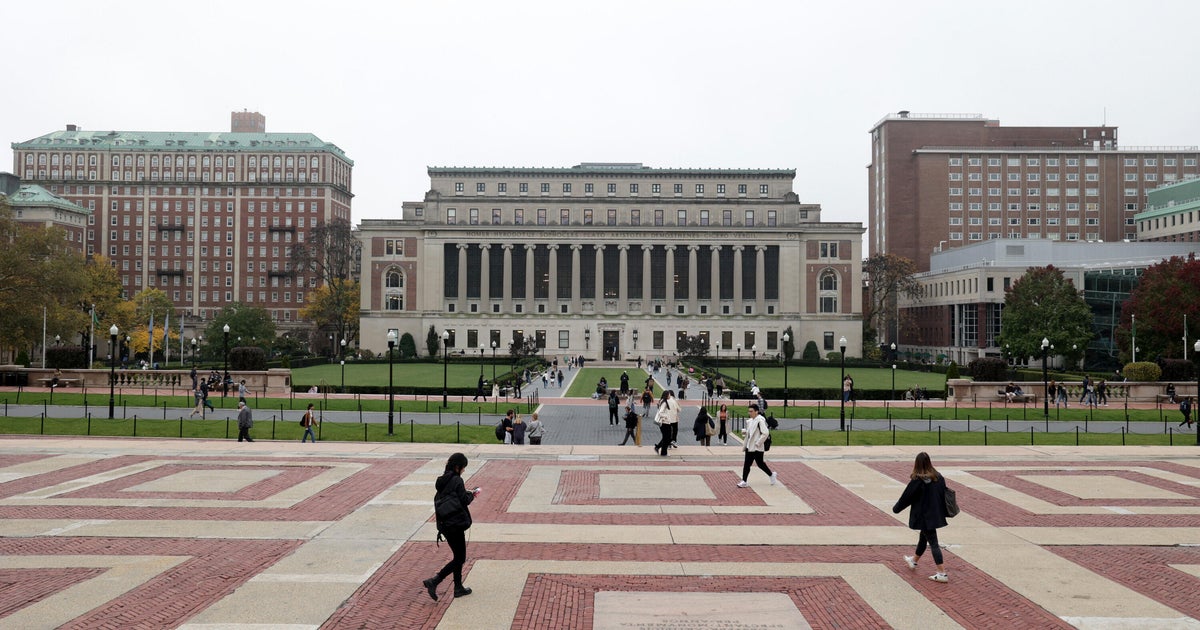Columbia University, a prestigious institution in New York, has recently been in the spotlight due to a series of radical changes it has announced. These changes include a new mask ban, the hiring of special officers, and other policies. The university has stated that some of these policies are in accordance with the demands made by the Trump administration. This announcement has stirred a mixed response from the students and staff of the university, and has sparked a wide-ranging debate about the implications of these new rules.
The Trump administration has been very vocal about its stand on various issues and has not shied away from making its demands known to different institutions, including Columbia University. This has led to a situation where the university had to comply with a list of demands from the administration before they could even begin negotiations on the $400 million in funding that the federal government had pulled. The government cited the university’s failure to protect students from antisemitism as the reason for pulling the funding.
In an email sent to students on Friday, Interim President Katrina Armstrong outlined the university’s response to the government agencies. She described the substantial work that the university had undertaken over the last academic year to achieve its mission, ensure the continuity of academic activities, and maintain safety and inclusivity on campus. The email acted as a reassurance to students that their well-being and the quality of their education remained the university’s top priority despite the financial and external pressures.
One of the most significant new policies that the university has announced is a ban on face masks or coverings intended to conceal an individual’s identity. This policy, however, does not apply to masks or face coverings worn for religious or medical reasons. In addition, any student participating in a protest or demonstration on campus will be required to present their university ID if asked by a university delegate or public safety officer.
In an effort to maintain security and order on campus, the university is also hiring 36 new special officers who will have the power to remove people from campus or arrest them if needed. These individuals are reportedly near the end of their training and credentialing under New York law to work on the university’s campus. The university has stated that while the internal security force is being trained and credentialed, they will continue to rely on their relationship with the New York Police Department for additional security assistance when required.
Changes have also been made to the disciplinary process, with the university judicial board now under the jurisdiction of the president’s office. Furthermore, a new Office of Institutional Equity has been established with 57 full-time staff members who will be responsible for investigating complaints of discrimination.
In addition to these changes, the university plans to appoint a new senior vice provost who will review its educational programs related to Middle Eastern studies. According to Interim President Armstrong, the review aims to ensure that the educational offerings in this area are comprehensive and balanced. The university also plans to review its admission procedures to ensure that they are unbiased. The Interim President has stated that the university will adopt a position of institutional neutrality and will proceed to establish an institution-wide policy that reflects this stance.
The Trump administration’s decision to withhold $400 million in federal grants and funding still hangs in the balance, and it remains unclear whether they will now reinstate it. This situation has led to a debate among students, with some questioning the cost of complying with the administration’s demands.
Student Yousif Elhaj expressed his skepticism about the government’s role in university affairs, stating, “It’s never the place of the government to really do these things.” Another student, Landon Pottebaum, found the university’s compliance with the administration’s demands disheartening and described it as an act of cowardice. He said, “Because Columbia has such a long reputation, a long history of being this protest school and kind of not wavering in the face of federal action and kind of letting the students act on their own, so I think this is just an act of cowardice, quite honestly.”
In its communication to the university, the Department of Education had made it clear that compliance with their demands was a prerequisite to discussing the school’s financial relationship with the federal government. As Columbia University now navigates these changes and attempts to secure its funding, the students, faculty, and staff wait to see how these policies will affect their everyday life on campus. The administration’s actions are being closely watched by other institutions across the country as they grapple with similar issues and demands from the government.









